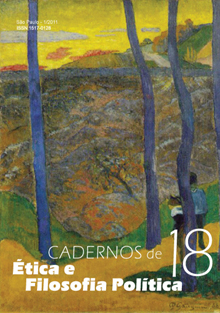Machination and lived-experience: the human as technopolitical being
Keywords:
Politics – Polis – Heidegger – Machination – Lived-experience – TechnicityAbstract
In this essay, I propose a comprehension of the meaning of politics based on Martin Heidegger’s thinking. I will develop the idea of the political as essential displacement of humanity. This notion will be achieved precisely by understanding the Heideggerian interpretation of Polis [πόλις] as the historical place i.e. the “site of history” [Geschichtesstätte]. In order to establish my argument, I will focus not only on explicit references to the concept of Polis in his literature, but also on a brief analysis of two key concepts presented in his work in the late 1930s: machination [Machenschaft] and lived-experience [Er-lebnis]. It is through these concepts, but also how, through them, a technicity and history are related, that I will delineate a context for the meaning of politics as essential displacement of humanity, which will thereby conform to the basic character of the techno-political being. Nevertheless, a reflection upon the meaning of politics leading to the characterisation of the human as a techno-political being will show itself as the question about the place of the philosopher, a way to put philosophy itself in question.Downloads
Download data is not yet available.
Downloads
Issue
Section
Artigos
How to Cite
Hoepfner, S. G. (2011). Machination and lived-experience: the human as technopolitical being. Cadernos De Ética E Filosofia Política, 1(18), 197-220. https://revistas.usp.br/cefp/article/view/55729


